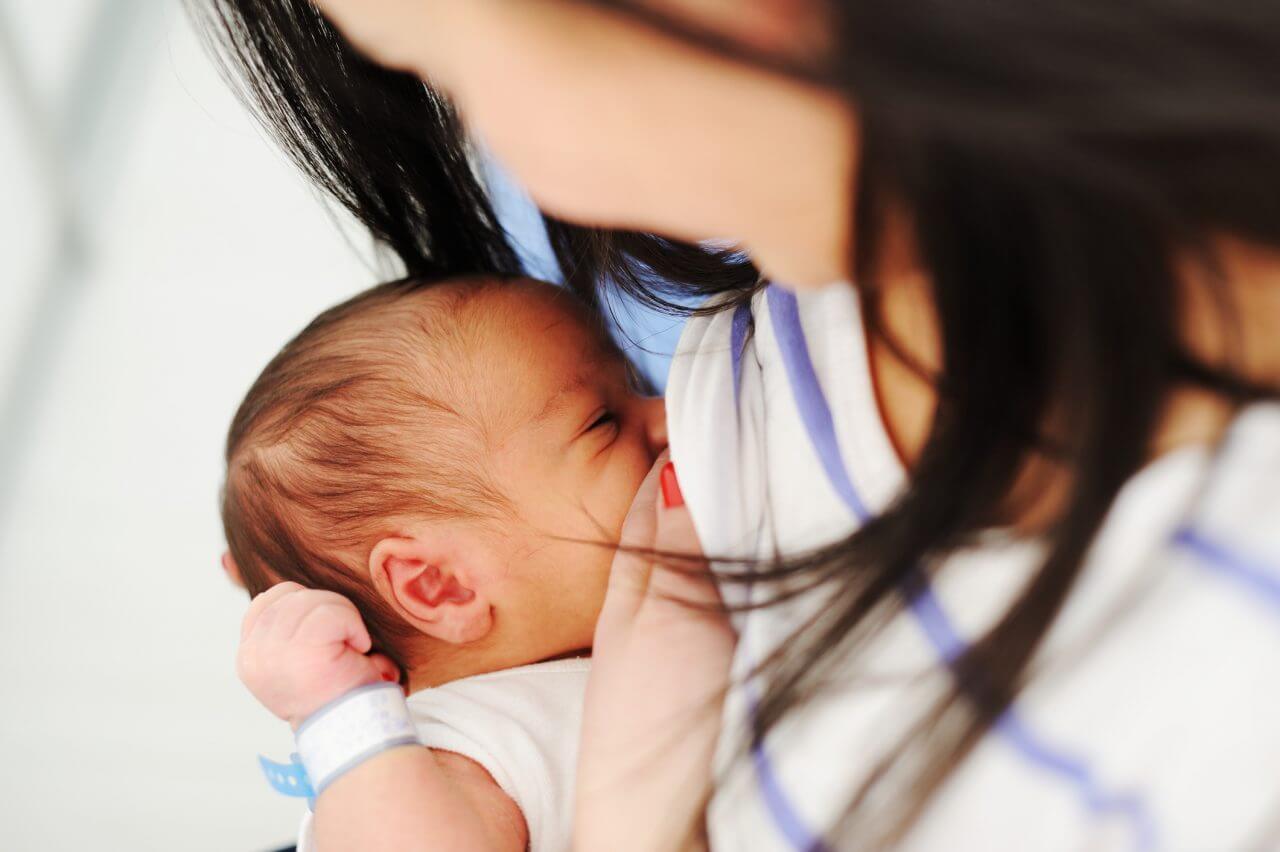What To Eat & What Not To Eat While Breastfeeding

How Important is Eating Healthy While Breastfeeding?
Eating healthy while breastfeeding benefits both moms and their breastfed babies. But what are the best foods to eat when breastfeeding? A healthy diet should include plenty of calcium, iron, potassium, and vitamins A and D. Breastfeeding mothers should strive to get those nutrients through a variety of foods, as it’s helpful to expose babies to different flavors.
What to Eat While Breastfeeding
Breastfeeding mothers should eat both the right number of calories and the right foods. Moms typically need an extra 450 to 500 calories per day to support their bodies. If you’re looking to lose weight after your pregnancy, you may not need to increase your caloric intake, but this is something you should discuss with your doctor.
As for good foods to eat while breastfeeding, here are some types of foods and nutrients you should include in your diet:
- Protein. Protein is an important component of the breastfeeding diet. Most moms require an extra 25 grams of protein each day. Good sources of protein include lean beef and pork, beans, peas, nuts, and seeds.
- Vegetables. A good target for breastfeeding moms is to consume three cups of vegetables per day. Vegetables are packed with the nutrients, vitamins and antioxidants. Some good options include carrots, tomatoes, spinach, red sweet peppers, kale, and sweet potatoes.
- Dairy. Consuming plenty of dairy can help replenish the calcium that pregnancy and breastfeeding can pull from your bones. Moms should get three or more cups of dairy products per day. This can include milk, cheese, and yogurt.
- Grains. Grains, particularly whole grains, provide nursing moms with many important nutrients. Rice, bread, pasta, and oatmeal are good sources. Eating eight ounces of grains per day is a good goal.
- Fruits. Not only are fruits rich in nutrients including vitamin A, vitamin C, and potassium, they may help relieve constipation, which some women experience after giving birth. Two cups of fruit are recommended, and this can include bananas, oranges, grapefruit, apricots, cantaloupe, mangoes, and prunes.
- Water. While water isn’t necessarily a food, getting enough of it is important. Drinking 12 tall glasses of water per day is a good goal.
Never Miss the News That Matters Most
Subscribe to our free email newsletter to ensure you stay in-the-know about the health and wellness news that matters to you and your family.
What Not to Eat While Breastfeeding
While nursing mothers can, and should, enjoy a great deal of variety in their diet, there are certain foods to avoid when breastfeeding. So, it’s important to know both what to eat and what not to eat when breastfeeding.
Foods to stay away from when breastfeeding include:
- Coffee and tea. Some of the caffeine in the coffee and tea you drink will end up in your breast milk and may make it harder for your baby to sleep. It can also make it harder for you to nap when your baby is napping or to sleep at night.
- Cabbage, broccoli, and other “gassy” foods. If a particular food gives you gas, it can produce the same reaction in your baby. If your baby is naturally gassy anyway, consuming these foods when breastfeeding can make them especially uncomfortable.
- Fish. Some types of fish like king mackerel and swordfish have higher levels of mercury, which can show up in your breast milk. If you’re going to eat fish, you should consume other types, like tilapia and trout, that have lower mercury levels and eat no more than six ounces of fish twice a week.
- Chocolate. Both the caffeine in chocolate and the fact that it can have a laxative effect on babies mean that you should avoid it or eat it in small quantities.
- Garlic. Breast milk reflects the flavors of foods you’ve eaten, and many babies don’t like the taste of garlic. In some cases, it may cause them to refuse to nurse.
- Peppermint, sage, and parsley. These herbs can have a negative impact on your milk supply. It’s best to minimize your consumption of them, especially if you have any indication that your baby isn’t getting enough breast milk when nursing.
The answer to other questions like, “Can I eat spicy food while breastfeeding?”, will depend on how your baby reacts when you do. But with a little experimentation and observation, you’ll quickly figure out what works.
Check out these 5 Health Tips for New Moms to learn other ways you can support your wellness as a newborn mother.
Next Steps and Useful Resources:
Find a Primary Care or Pediatric Provider Near You
Register for a Mother & Baby Care or Breastfeeding Class
A Guide to Breastfeeding Basics



